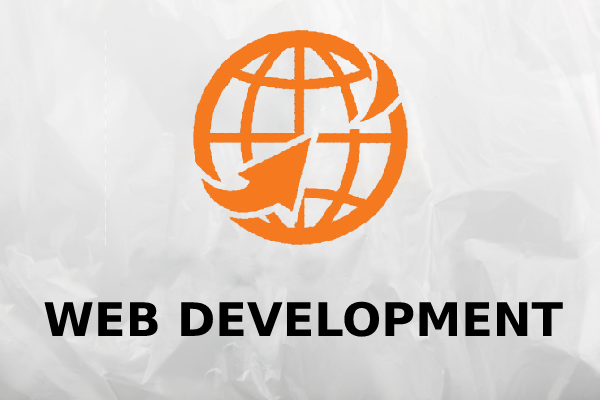Embedded System
Every day we interact with hundreds of tiny computers. These micro controllers are the building blocks of our modern world. They run the embedded systems in our homes, our phones, our cars, our factories, our cities, our toys, and some are even embedded inside us.
Be it any industry such as Telecommunication, Automobile, home automation, medical, Space research, Aerospace etc. Embedded systems play a vital role and embedded developers are one among the most wanted professionals in the market.
So, are you curious to know who is an embedded software developer and what a embedded software developer do for a living?
Here you go –
An embedded software developer’s role revolves around designing, coding, implementation of embedded devices and system, testing and debugging the system software and also analyzing and monitoring the interlinks of input – output generation, enhancing efficiency, stability and scalability of system resources.
Simply put, Embedded Software Developers are generally responsible for developing and implementing software of embedded devices and systems. In addition, they may be responsible for analyzing and monitoring the efficiency and stability of the system.
The necessary skills that are crucial for a firm foundation to leverage your career as an embedded software developer are as follows:
- ARM Architecture
- Software Development in relation with Hardware Devices
- C++ Programming Language
- Directives (Briefing, writing, testing, implementation, analysis and troubleshooting)
Thus, an embedded software developers are in charge of creating effective embedded software applications for their organization. They are responsible for programming the software capabilities based on project requirements, as well as resolving obstacles as they arise during the development process.
Now that we know, who is embedded software developer and whatare their roles. Let’s figure – how to embark on your journey to become an embedded software developer.
The following are essentials to become an embbed software developer:
- Mastering software development in C/C++
- Strong expertise in General-Purpose Operating Systems (GPOS), such as Linux as well as Real-Time Operating Systems.
- Knowledge of networking technologies including Ethernet, TCP/IP
- A strong fundamental understanding of the different types of memory, including RAM,ROM, and Flash.
We at Xplore IT Corp has made this easy for you to up-skill and kick-start your journey as an embedded engineer with our best embedded system course in Coimbatore.
Features of the course
In this embedded system course, we at Xplore IT Corp will take you on a hands-on journey into the world of embedded systems.
Key Takeaways
If you’re a do-it-yourself hobbyist and want to take it to the next level, then this is your launch pad.
The Embedded System Training course facilitated by Xplore IT Corp’s incorporates the latest technology and infrastructure making it a worthwhile experience, turning learning into a fun adventure.
Each student gets their own micro-controller kit, and with a few simple components, we can turn this into a functioning system. By the end of this course, you will be building and programming your own fun projects that could build your USP and showcase your creativity to the recruiters. All you need is a bit of programming and high school physics, and we help you build some amazing gadgets.
- Hands on knowledge in different real-world applications and IOT modules
- Complete understanding of the micro controllers and its architecture used for developing embedded applications.
- Understanding the Roles and responsibilities of an Embedded Developer.
- A Valid Certification
The best way to learn is to do and have fun joining us at Xplore IT Corp turning learning into adventure.
Target Audience
Scope and opportunities Present in Future
There are lot many opportunities exist in the core industry. Skilled professionals are needed in Core companies who are enough qualified to develop embedded and IOT applications.
Embedded Software Engineering is in demand now more than ever and is expected to grow 21%between 2020 to 2028.
Job Roles in Embedded Software Developer:
- Designing and implementing software of embedded devices and systems.
- Designing, Developing, Coding, Testing and Debugging system software.
- Integrate and validate new product designs.
- Basic Semiconductor Devices and Circuits – PN Junction, BJT and MOSFET
- CMOS design technology
- Interpreting device datasheets (PN junction, BJT, MOSFET )
- Number Systems
- Combinational Network Design
- Interpreting the datasheet of a Logic Gate
- Designing with Mux, De mux, Decoders, Encoders
- Sequential Elements – D Latch, D Flip Flop
- Design of Sequential Systems – Registers and Counters
- Introduction to Data Converters
- Fundamentals of Embedded System Design
- Design methodology
- Real-Time Embedded Systems
- Embedded System design challenges, Metrics & Goals
- Development environment
- Current market trends & Applications
- Careers and Job opportunities
- Introduction to C Programming
- Structure of a C program
- The C compilation process
- Types and Operators
- C base types
- Precedence & Associativity
- Arithmetic operation
- Promotion & Typecasting
- Control Flow
- Logical expressions
- Decision Making
- Loops
- Definitions and Declarations
- Header files
- Scope and lifetime
- Storage Classes
- Introduction to Pointers
- Using pointers to access single dim arrays
- Bit Manipulation
- Functions – The Function as a logical program unit
- parameter passing by copy and reference
- Feature, Architecture, Applications
- PIC16f877a Datasheet and its uses
- Basic I/O operations, 4 digit LCD, etc..,
- Timer, Counter
- Communication protocols
- UART, I2C, Serial Peripheral Interface
- ADC Analog to Digital Converters
- Introduction to various types of sensors
- Creating Simple Real Time Applications using PIC 16f877a
- Interfacing Codes with PIC development Board
- Arrays, Pointers and Strings
- Arrays as circular buffers
- Relationship between pointers & arrays
- Pointer arithmetic
- C string handling
- Advanced Data types
- Structures
- Unions and Enums –Structures
- Big & Little Endian representations
- Bit-field structures
- The C Pre-Processor – Macros
- Conditional Compilation C Compilation process
- pre-processor, compiler, assembler, linker stages
- KEIL
- Proteus 8
- MPLAB X IDE
- AVR Studio
- Introduction to Embedded System and ARM Processor
- ARM related Companies and its opportunities
- ARM processor family
- Application of ARM Processor
- Compiler
- Emulation and Debugging
- Difference between RISC & CISC
- LPC2148 ARM 7 microcontroller
- Features of LPC2148
- Block diagram of LPC2148
- Pin diagram of LPC2148
- Architectural overview
- On-chip flash program memory
- On-chip static RAM
- Crystal Oscillator
- PLL
- Reset and Wake-up Timer
- Brownout detector
- Code Security
- External Interrupt input
- Pin Connect Block
- General Purpose Parallel I/O Features
- 8 Bit LED’s and switches
- Relay and Buzzer
- Seven Segment Led
- Keypad
- LCD
- General purpose timer/ External event counters Features
- Interfacing Timer and Counter Operation
- 10-bit ADC Features
- Interfacing Temperature Sensor LM35
- 10-bit DAC Features
- Interfacing DAC
- UARTs Features
- Serial Communication
- Interrupt Controller
- Interrupt Sources
- External Interrup
- I2C – bus serial I/O Controller
- SPI- Serial I/O Controller
- Watchdog timer
- Real Time Clock
- Pulse Width Modulator
- RTOS
- Introduction about PCB
- Combinational and sequential Circuits
- Basic circuit designing
- Schematic design and board level designing
- Bluetooth (Programming)
- RFID (Programming)
- GSM,GPS (Interfacing & Programming)
- Other real time applications
DURATION
The duration of this course will be of 2 month, with 1-2 hour sessions each day for a total of 80 hours.
CERTIFICATION POLICY
Certificate of Merit for all the participants.
At the end of this course, an assessment will be organized among the participating candidates, and front-runners will be awarded a ‘Certificate of Excellence.
Certification from JAIN University can be availed.
Faculty Credential
Mr. Gobinath A who has almost eight years of industry experience in IT industry is handling the program. He is a Certified Ethical hacker and qualified with many global certifications in Embedded Systems, IOT, Python, Machine Learning, Artificial Intelligence, Data Science.
FAQ’s
The Embedded Systems course duration is of 90 days.
Programming knowledge is necessary prerequisite. If you are a fresher, you may choose to learn basic programming before taking up Embedded Systems.
With this Embedded system coaching classes, We have designed an amazing hand on sessions for each theory part. Overall, 80% of the sessions will be practical and remaining sessions are theoretical explanations of the concepts, which is unavoidable.
Throughout your journey we are here to support and give life to your dreams. Yes, Placement support will be provided as and when the requirements are available as per the industry demand.
Yes, but on very limited batches. You need to contact our office for batch information.
ELIGIBILITY
It is a foundational level course so there are no prerequisites. Anyone interested can join this course.



